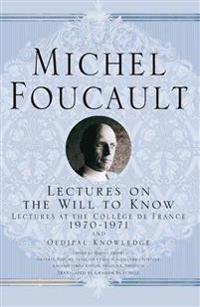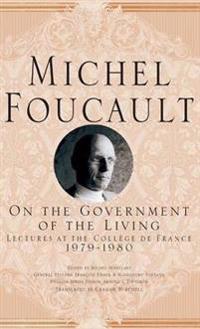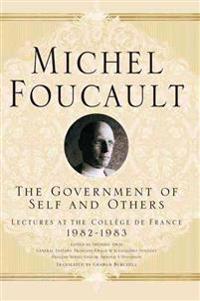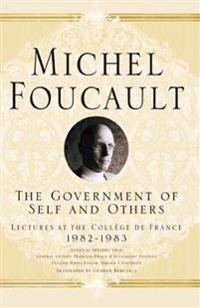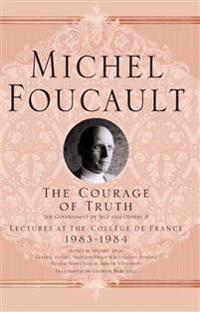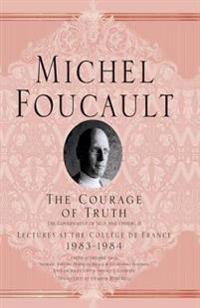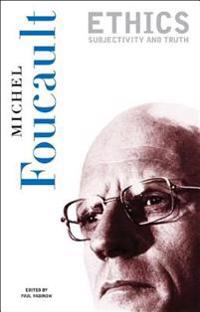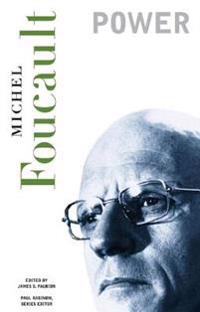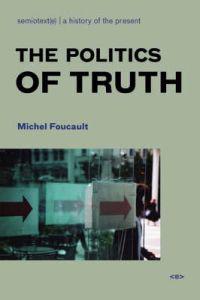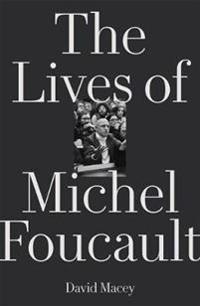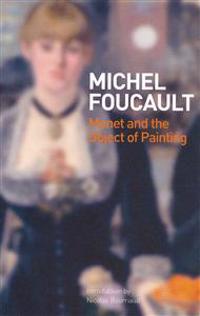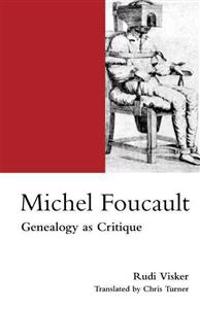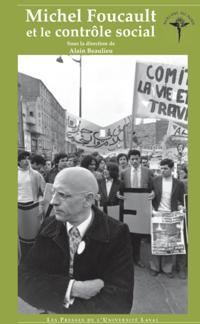Lectures on the Will to Know (Inbunden)
avMichel Foucault
ISBN: 9781403986566 - UTGIVEN: 201304"The Will to Know" reminds us that Michel Foucault's work only ever had one object: truth. Here, he builds on his earlier work, "Discipline and Punish," to explore the relationship between tragedy, conflict, and truth-telling. He also explores the different forms of truth-telling, and their relation[...]
On the Government of the Living (Inbunden)
avMichel Foucault
ISBN: 9781403986627 - UTGIVEN: 2014-09The Government of Self and Others (Inbunden)
avMichel Foucault
ISBN: 9781403986665 - UTGIVEN: 201004.
Discipline & Punish: The Birth of the Prison (Övrigt)
avMichel Foucault, Simon Prebble
ISBN: 9781452665566 - UTGIVEN: 2013-09Two hundred and fifty years ago, a man condemned of attempting to assassinate the King of France was drawn and quartered in a grisly spectacle that suggested an unmediated duel between the violence of the criminal and the violence of the state. This groundbreaking book by Michel Foucault, the most i[...]
Ethics: Subjectivity and Truth (Häftad)
avMichel Foucault, Paul Rabinow
ISBN: 9781565844346 - UTGIVEN: 199805Power (Häftad)
avMichel Foucault, James D. Faubion
ISBN: 9781565847095 - UTGIVEN: 200109This volume draws together Foucault's contributions to what he saw as the still-underdeveloped practice of political analysis. It covers the domains Foucault helped to make part of the core agenda of Western political culture - medicine, psychiatry, the penal system, sexuality - illuminating and exp[...]
The Politics of Truth (Häftad)
avMichel Foucault
ISBN: 9781584350392 - UTGIVEN: 200707In 1784, the German newspaper Berlinische Monatsschrift asked its audience to reply to the question "What is Enlightenment?" Immanuel Kant took the opportunity to investigate the purported truths and assumptions of his age. Two hundred years later, Michel Foucault wrote a response to Kant's initial [...]
Introduction to Kant's Anthropology (Häftad)
avMichel Foucault
ISBN: 9781584350545 - UTGIVEN: 200808Introduction to Kant's Anthropology From a Pragmatic Point of View Michel Foucaulttranslated and with an introduction by Arianna BoveThis introduction and commentary to Kant's least discussed work, Anthropology from a Pragmatic Point of View, is the dissertation that Michel Foucault presented in 196[...]
Michel Foucault (häftad)
ISBN: 9781594511691 - UTGIVEN: 2006-09"Olssen ! brings Foucault to life and sheds new light on understanding his work...Educationalists and scholars across the disciplines will welcome this interpretation of Foucault." Michael A. Peters, University of Glasgow "Olssen distills in brilliant and succinct language the core of Foucault's mos[...]
Quicklet on Michel Foucault's Discipline & Punish: The Birth of the Prison (CliffNotes-like Summary)
ISBN: 9781614648994 - UTGIVEN: 2012-02The Lives of Michel Foucault (häftad)
ISBN: 9781788731041 - UTGIVEN: 2019-01When he died of an AIDS-related condition in 1984, Michel Foucault had become the most influential French philosopher since the end of World War II. His powerful studies of the creation of modern medicine, prisons, psychiatry, and other methods of classification have had a lasting impact on philosop[...]
Michel Foucault (Inbunden)
ISBN: 9781844652341 - UTGIVEN: 2010-09Michel Foucault was one of the twentieth century's most influential and provocative thinkers. His work on freedom, subjectivity, and power is now central to thinking across an extraordinarily wide range of disciplines, including philosophy, history, education, psychology, politics, anthropology, soc[...]
Michel Foucault (Häftad)
ISBN: 9781844652358 - UTGIVEN: 201009Michel Foucault was one of the twentieth century's most influential and provocative thinkers. His work on freedom, subjectivity, and power is now central to thinking across an extraordinarily wide range of disciplines, including philosophy, history, education, psychology, politics, anthropology, soc[...]
Manet and the Object of Painting (Häftad)
avMichel Foucault, Nicolas Bourriaud
ISBN: 9781854379962 - UTGIVEN: 201108This title is new in paperback. In this encounter between one of the twentieth century's greatest philosophical minds and an artist fundamental to our understanding of the development of modern art, Michel Foucault explores Manet's importance in the overthrow of traditional values in painting. Trans[...]
Michel Foucault (Häftad)
avRudi Visker
ISBN: 9781859840955 - UTGIVEN: 199505The reception of Michel Foucault's work has often been divided between two unsatisfactory alternatives. On the one hand there are those who admire the detail of his concrete analyses, but wonder how the political and ethical commitments they seem to rely on can be justified. On the other, there are [...]
Abnormal (Inbunden)
avMichel Foucault
ISBN: 9781859845394 - UTGIVEN: 200312Michel Foucault remains one of the towering intellectual figures of the last half century. Michel Foucault's works on sexuality, madness, the prison and medicine are classics and his example continues to challenge and inspire. The philosopher gave public lectures at the College de France from 1971 u[...]
Michel Foucault (Häftad)
avDavid Macey
ISBN: 9781861892263 - UTGIVEN: 2004-11Throughout most of his career, Michel Foucault consistently refused to say much about himself and was reluctant to be defined in either professional or personal terms. His stance was Do not ask who I am, and do not ask me to remain the same'. In the last years of his life, he changed his stance, gav[...]
Michel Foucault's What is an Author? (häftad)
ISBN: 9781912453085 - UTGIVEN: 2018-05Michel Foucault's 1969 essay "What is an Author?" sidesteps the stormy arguments surrounding "intentional fallacy" and the "death of the author," offering an entirely different way of looking at texts. Foucault points out that all texts are written but not all are discussed as having "authors". So w[...]
Fiche de lecture Surveiller et Punir de Michel Foucault (Analyse philosophique de référence et résumé complet) (häftad)
ISBN: 9782367889610 - UTGIVEN: 2019-01Michel Foucault et le controlesocial
ISBN: 9782763702032 - UTGIVEN: 2014-04Vingt ans apres leur fin abrupte, et malgre le caractere encore partiel de la reception de son travail (la moitie des lecons au College de France demeu-rent non publiees), les analyses du pouvoir elaborees par Michel Foucault (1926-1984) ont une influence durable sur un nombre impressionnant de sphe[...]

